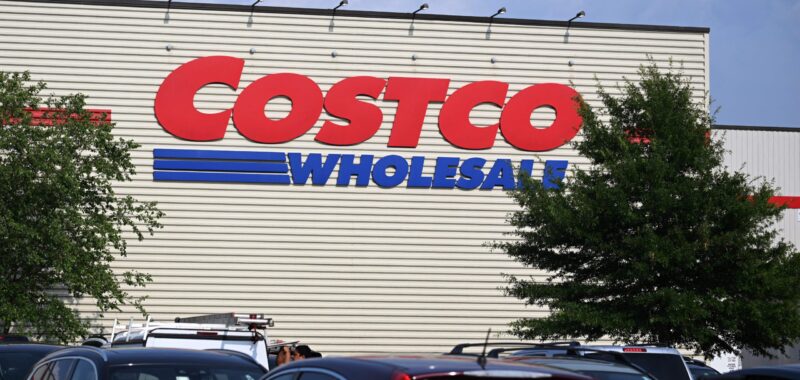Costco Wholesale‘s (COST 2.65%) stock has earned considerable returns for its investors in recent years. The stock marched steadily higher in 2023 and 2024 but has endured a pullback amid the sell-off in the broad market and is now near correction territory.
Indeed, Costco has evolved into one of the world’s most successful retailers, and its rising stock price likely reflects its strong position in the marketplace. The question for its shareholders is: Can the retail stock recover in the next year, or is it in for further selling?
The state of Costco’s stock
As mentioned before, Costco stock trades in correction territory, peaking at an intraday high of more than $1,078 per share before its recent pullback. One can likely credit the stock’s popularity to the company’s consistent execution and tremendous growth runway.
Its network of 897 warehouses globally continues to post steady revenue growth and membership renewal rates in excess of 90%.
Additionally, the company has plans for 29 new locations in fiscal 2025. The good news for investors is that it is not near a saturation point, even in the U.S., which accounts for 617 of its locations. Many midsize metropolitan areas in the U.S. do not have a Costco, and many major metros do not have a business center, leaving ample room for further U.S. expansion.
Moreover, Costco has successfully adapted its business model to foreign markets, an area where retailers like Walmart and Home Depot struggled. Assuming the current trends continue, its expansion could go on for decades.
Assessing Costco’s successes
Nonetheless, Costco’s shareholders face a key challenge — the company’s enduring success. Its stock has risen more than 220% over the last five years, far outpacing the S&P 500‘s performance.
Due to that track record, it has long commanded a premium valuation, with its P/E ratio staying above 30 since 2019. It also seems to have defied Warren Buffett’s expectations as his team at Berkshire Hathaway sold its long-held Costco position in 2020, even as Buffett’s partner Charlie Munger maintained a seat on Costco’s board until he passed away in 2023.
Still, its earnings multiple surged above 60 early in the year, an all-time high for this metric. Knowing that, the current P/E ratio of 57 may seem elevated, even for a successful stock such as Costco.
Investors may also ask whether its financials justify such an earnings multiple. In the first six months of fiscal 2025, the company generated almost $126 billion in revenue, an 8% increase compared to the same period in fiscal 2024. That included a 6% increase in comparable sales over the same time frame.
After covering its costs and expenses, net income for the first two quarters of fiscal 2025 was just under $3.6 billion, rising 8% from year-ago levels. Additionally, the future points to more of the same, as analysts forecast 8% revenue growth in the coming year.
While that means its consistent growth should continue, investors are likely right to question whether that justifies its 57 P/E ratio. Such levels mean it could experience significant multiple compression on any hint of bad news, making the stock’s performance uncertain in the near term.
Where will Costco stock be in one year?
Given Costco’s high valuation, it will more than likely underperform the indexes over the next year.
Admittedly, anything can happen with its stock performance over the next year. Costco’s success in retailing should bode well for the stock in the long term, and longtime shareholders have good reason to hold their shares.
Still, valuations matter, and its high P/E ratio increases pressure on the company to beat analyst and investor expectations. With revenue growth stuck in the single digits, Costco’s consistency may not be enough to justify its lofty valuation.
Amid such challenges, investors should probably hold out for a much lower P/E ratio before adding more Costco shares.
Will Healy has positions in Berkshire Hathaway. The Motley Fool has positions in and recommends Berkshire Hathaway, Costco Wholesale, Home Depot, and Walmart. The Motley Fool has a disclosure policy.

